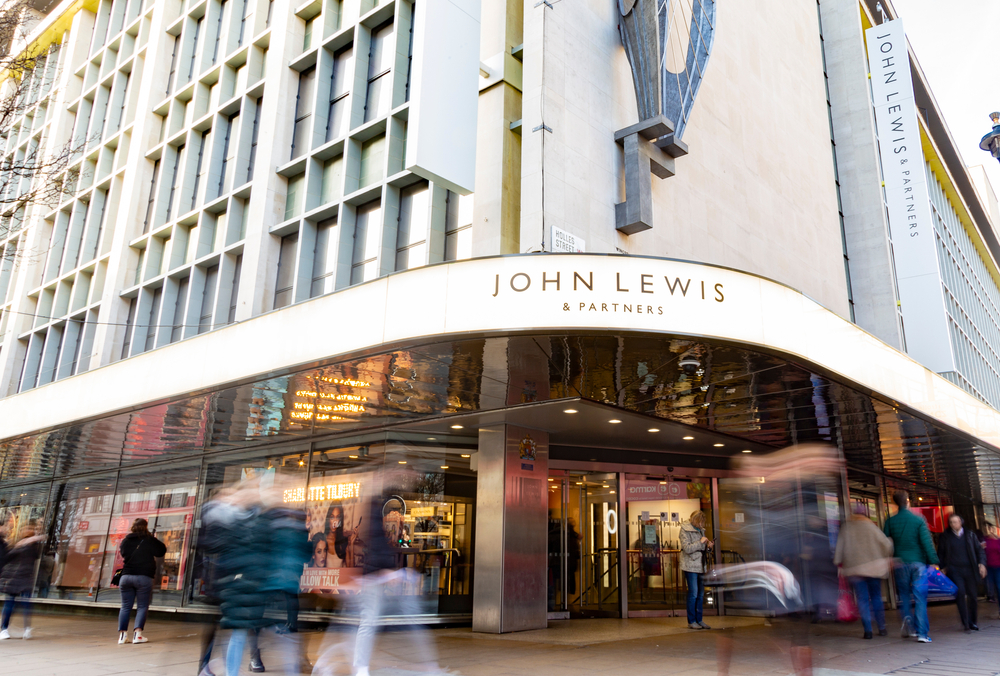Employees’ mental health is costing UK employers up to £45 billion each year, according to a report released by Deloitte and mental health charity Mind earlier this year.
As well as there being an ethical argument for retailers to support the mental health of their staff, there’s a clear economic one too.
As a large section of retail saw itself catapulted into key worker status, it was clear that the anxiety and uncertainty of the sector’s role in the coronavirus pandemic was going to have an effect on the emotional wellbeing of store staff.
The effects of lockdown may continue to impact the mental health of workers nationwide for years to come, so it’s not surprising that retailers are seeking ways to commit to prioritising the mental wellbeing of their own staff.
Covid-19 has shone a light on the delicate nature of mental wellbeing. Many experts told Retail Gazette that consumers will remember those brands that stepped up to help their staff during this pandemic.
One retailer which took initiative is Aldi. The German discount grocer joined forces with charity Mental Health UK to support its 33,000 key workers across the UK who have worked through the lockdown.

The two-year partnership, announced last month, will help staff and their families look after their wellbeing by changing their perception of mental health, and giving them the confidence to have open conversations about mental wellness.
“It has never been more important to protect our mental health and support others as we navigate these uncertain times,” Aldi HR director Sophie Smith said.
“Mental health is important for everyone, but with one in four of us experiencing a mental health problem, we know that many of our colleagues are likely to be impacted in some way.”
Dr Nick Taylor, clinical psychologist and chief executive of workplace mental health platform Unmind, said other retailers should try and emulate Aldi. He also said the strain of the pandemic on workers is not something to be underestimated.
“Supermarket staff were rightly heralded as keyworkers during this pandemic,” he said.
“While others shifted to working from home, they continued to work tirelessly to keep the nation fed during these turbulent months.
“These workers put their physical health at risk while adapting to new patterns of working and ensuring the safety of their customers.
“We mustn’t underestimate the strain that these chaotic times will have had on their mental health too.”

The retail sector was undoubtedly one of the hardest hit industries during the pandemic, with non-essential shops forced to temporarily shut down since late March.
Now that the government has given the sector the green light for reopening from Monday next week, retailers may need to work with mental health organisations in an effort to show employees and customers they are committed to opening up the conversation about mental health.
Jo Loughran, director of Time to Change, the mental health anti-stigma campaign run by Mind and Rethink Mental Illness, said all employers have a responsibility to support their staff’s mental wellbeing. She added that they should “create a culture where employees can feel comfortable talking about their mental health in the workplace, should they choose to”.
Meanwhile, at jewellery retailer Beaverbrooks, the mental wellbeing of staff has been “virtually” prioritised due to Covid-19 restrictions.
“Communication has always been key at Beaverbrooks, but during lockdown staying connected with our Beaverbrooks family has been more important than ever,” managing director Anna Blackburn told Retail Gazette.
“Employers have a responsibility to support their staff’s mental wellbeing”
“Lockdown has also proved that anything is possible; we hosted our 38th annual Beaverbrooks 10k Fun Run as a ‘virtual’ event, with almost a third of our colleagues running which was a great way to boost physical and mental wellbeing, and raise money for charity.”
While retailers are set to reopen on Monday, James Simpson, head of employment at Blaser Mills Law, said employers are not obligated to give staff members extra paid time off in addition to their agreed holiday entitlement.
However, he argued that they should always pay attention to employee wellbeing, particularly following sudden demand post-lockdown.
“They should be prepared to take action as necessary to avoid putting staff under additional stress,” he explained.
“This could mean, for example, being flexible with shift patterns to allow staff members to start earlier or finish later to cater for any childcare needs or care for other dependants.
“It is important to note that employees do have the right to take a ‘reasonable’ amount of unpaid time off work to take ‘necessary’ action to deal with these situations, and it is essential that employers are fair and consistent in their approach to avoid any potential for discrimination issues and disputes.”
“Employers should be prepared to take action as necessary to avoid putting staff under additional stress”
Another form of stress that workers may face could be the lack of protective measures – despite most retailers pledging to ensure this included in their health and safety measures. Workers still fear a lack of personal protective equipment or the impracticable planning of social distancing in particularly cramped stores.
According to Simpson, an employer has “a legal duty of care to ensure the health and safety of employees”.
“This means they must comply with government guidance, including social distancing measures in the workplace, as well as providing appropriate PPE to those who need it,” he added.
“Failure to follow this guidance will be strong evidence of not taking reasonable care, so employers should keep all staff members up to date to make sure they are aware of the systems being put in place to minimise health risks and the potential spread of infection.”
Nevertheless, retailers may need to focus on generating a culture where it is acceptable to talk about mental wellbeing. While this alone may not be enough to alleviate the stigma, it’s a crucial signal that talking about mental health is not a barrier to career progression and may encourage more open conversations.
Click here to sign up to Retail Gazette‘s free daily email newsletter


















